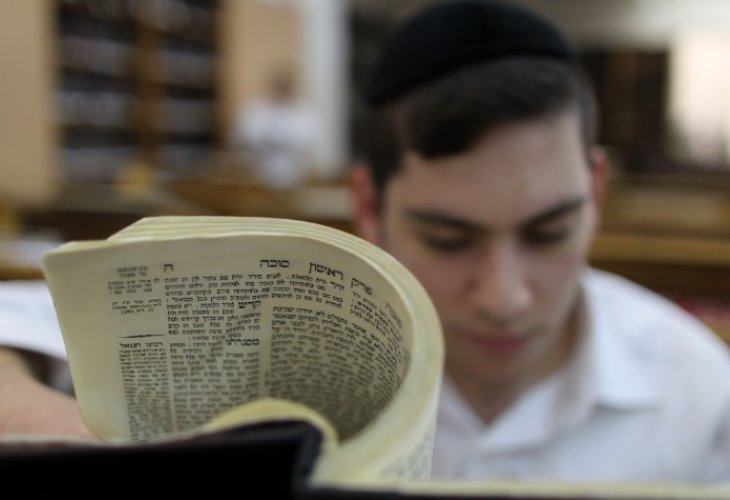Torah Personalities
Rabbi Shlomo Zalman Auerbach: Life, Legacy, and Inspiring Stories of a Halachic Giant
A look at his Torah leadership, extraordinary humility, and heartwarming acts of kindness
 Rabbi Shlomo Zalman Auerbach
Rabbi Shlomo Zalman AuerbachThe 20th of Adar, marks the yahrzeit of the great Torah sage, Rabbi Shlomo Zalman Auerbach — Rosh Yeshiva of Kol Torah and one of the most influential halachic authorities of the modern era.
Rabbi Shlomo Zalman used to say: “I don’t love stories about extraordinary acts that no one can imitate. I love stories that a person can emulate.”
Below is a collection of such stories — simple yet profound glimpses into his kindness, humility, and greatness.
A Genius in Halacha
Rabbi Shlomo Zalman was a towering halachic authority. His first sefer, Me’orei Eish, was published already in 1935. He later authored additional foundational works, including Ma’adanei Eretz, Shev Shemaatsa, and Minchas Shlomo. He was also the guiding halachic authority behind the well-known work Shmirat Shabbat Kehilchatah.
He emphasized practical learning. When a mashgiach asked what mussar topics should be prioritized in the yeshiva, Rabbi Shlomo Zalman answered immediately: “Speak about things that can be put into practice.”
A Lifetime at the Helm of Kol Torah
In 1949 he was asked to head Yeshivat Kol Torah. He accepted — and served as Rosh Yeshiva for the rest of his life. Over the years, people from all over the world sought his halachic guidance in every area imaginable: technology, medicine, Shabbat, military issues, science, and more. His mind was extraordinarily sharp, yet utterly grounded.
Extraordinary Kindness and Humility
Despite his brilliance, two traits stood out: warmth and humility.
Every Jew — scholar or child, taxi driver or CEO — was greeted with genuine warmth. A taxi driver who frequently transported him said: “I drive many rabbis, but I’ve never met anyone so kind. He always asked about my wife and children. I begged the drivers at the station: let me be the one to take him.”
Endless Patience for Those Seeking Help
After delivering his daily shiur, he would return home and patiently receive everyone waiting for advice or a blessing. His family often reheated his meal many times, yet he would not leave the people waiting. Only at 3:00 PM would he agree to eat, saying: “How can I eat after hearing so many of the Jewish people’s troubles?”
Even in old age, when he was unwell, he insisted on receiving a woman who had come for help, gently telling her: “This is not illness — this is just my old age. And if you come tomorrow, it will be the same old age… one day older.”
How to Awaken Mercy in Heaven
A sick Jew once asked how to evoke Heavenly mercy. Rabbi Shlomo Zalman answered: “I will tell you what I would do.
I would strengthen myself in saying 100 blessings each day — slowly, clearly, with feeling. If I could do that properly, it would be the greatest thing.”
People who heard him bless said his face would glow with holiness.
Giving Strength to a Child
A young orphan was too embarrassed to say Kaddish. Rabbi Shlomo Zalman personally visited him, explaining softly how much comfort the Kaddish brings to the soul of the departed. The child began saying Kaddish with confidence.
Quiet Rebuke, Never Embarrassment
Once he traveled with several people in a taxi whose driver sped dangerously. Rabbi Shlomo Zalman said nothing until the passengers exited. Only when he was alone with the driver did he firmly admonish him for endangering lives — careful not to embarrass him publicly.
Love Between Husband and Wife
He and his wife lived their entire married life with deep affection and respect. At her funeral, he said: “People ask forgiveness at funerals. But you know I have nothing to ask forgiveness for — our whole life was according to Halacha. Still, in case there was anything I do not recall, I ask forgiveness.”
He explained: “I reviewed in my mind the entire walk from Shaarei Chesed to Har HaMenuchot. I could not remember a single hurt between us.”
Comforting Others Even in His Own Grief
When his wife suddenly passed away on Shabbat, he rushed after Shabbat to the hospital morgue. In the elevator, a student entered joyfully and told him that his wife had just given birth to a son. Rabbi Shlomo Zalman congratulated him warmly, wishing him blessings — concealing his own heartbreak. Only afterward did he turn back to his wife’s body.
A Giant Who Fled Honor
Although regarded as the leading posek of his generation, he disliked honor or titles. Whenever newspapers referred to him as “Posek HaDor,” he would phone their editorial desks to ask them not to write this again.
When publishing Minchas Shlomo, his family suggested names like “Chochmat Shlomo” or “Torat Shlomo.” He refused because they sounded too grand. When someone suggested Minchas Shlomo, he smiled and said: “Even a poor man can bring a mincha offering.”
His Humble Will
In his will he wrote:
No honorifics on his tombstone.
Only the initials “הר״ג” (“the rabbi”) may be written.
It may state simply that he taught Torah at Kol Torah and spread Torah to the masses.
His gravestone must not be taller than his parents’.
A taxi driver, upon hearing this, said: “Where will you find such respect for parents today — even for parents who passed away fifty years ago?”
“Who Is Honored? One Who Honors Others”
His youngest son, Rabbi Baruch said at the funeral: “Who is honored? One who honors others. What did we see in this home? Honor for every human being — in such simplicity and such greatness. To the Jew on the street, the simple worker, the great scholar, the small child — he treated everyone with such respect. Oy, my sweet father!”

